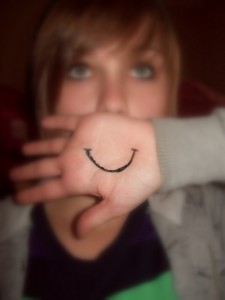I think I was born to be an insomniac. Starting in my preteen years, I developed a complete aversion to falling asleep before midnight. I also developed this amazing talent where I feel sleepy all day and perk up as soon as I should be going to sleep. I can spend hours upon hours on Facebook, but only after the sun sets. I also tend to discover new passions when the rest of the world is asleep – it’s 2 am and I just have to learn to speak Japanese by tomorrow morning!
So how does a guy like me get any sleep? Well, the answer to that question is still in the makings. But I can offer you some tips that I’ve found helpful over the years in my quest to overcome my nocturnal nature and embrace the wonders of sleep hygiene.
How to avoid BAD sleep hygiene
1. Do NOT consume caffeine close to bedtime. Obvious, right? Well, I bet you’re still doing it. I’ve spent many a night lying in bed with my eyes glued open, staring at the ceiling fan as I count the number of pages I have to read in the next week because of that extra cup of coffee I just had to have at 10 pm. There are many alternatives to caffeine to give you a little energy boost – I recommend that you become familiar with them.
2. Do NOT go to bed after drinking copious amounts of alcohol. This is another common tip, but you’ve probably ignored it because it sounds paradoxical. Alcohol makes you sleepy, right? Sure, in the short term. But if you’re looking to get a good night of sleep, don’t turn to alcohol. It may put you to sleep faster, but once it is metabolized from your system, it will disrupt your sleep. Alcohol has a pretty complex relationship with sleep, so it’s best to just not mix the two.
3. Do NOT spend hours on the computer right before sleep. You’ve been told a million times before – don’t surf the web before bedtime. But how often do you listen? It’s tough, because often, our computers are what keep us entertained. Shut off the computer at least two hours before bed, and pick up a book or take a bath or something. Life goes on even when you’re not constantly checking your email.
4. Do NOT spend time in bed when you’re not sleeping. As much as we love watching TV, surfing the web, and playing Skyrim while lying in our comfy beds, these behaviors perpetuate sleep problems. You should keep your bed for two things: sleeping and sex. That way, you will develop a stronger association between lying in bed and falling asleep.
5. Absolutely, whatever you do, do NOT plan for the future right before bed. This is often my biggest downfall. I’m up late, worrying about something, and so I decide to make a plan. Sounds reasonable, right? WRONG. Planning for the future is very stimulating and will keep you up all night obsessing over details. “Maybe I should read that chapter Tuesday instead of Wednesday, and then that will leave Wednesday open for finishing my essay, oh but wait, I also have to start my proposal outline, so maybe I should finish my essay Tuesday, and oh….damn it, I’ll just get out of bed and start now!” Insomnia: 1. Justin: 0.
How to promote GOOD sleep hygiene
6. Stay physically active throughout the day. While the exact relationship between sleep and exercise is not really clear, years of research have shown that physically active people do sleep better, on average. Whatever the real cause, I find that I sleep much better when I’ve been going for regular runs or hitting the gym at least 3 times a week. If you’re not an exercise fanatic, don’t worry. Physical activity can be as simple as walking briskly with your dog or doing 20 crunches before a meal.
7. Stay mentally active throughout the day. Part of the reason some of us can’t sleep at night is because we’re just not active enough during the day. Yes, physical activity is a big part of that, but something that often goes overlooked is mental activity. Activities that require intense concentration or problem solving skills wear down your energy reserves just as much as exercise. Instead of watching three hours of TV in your free time, try playing a video game, writing poetry, or whatever you enjoy doing that requires brain power.
8. Try to have a regular sleep-wake cycle. I always want to scream when someone shares this tip with me. Get up and go to bed at the same time EVERY DAY? Are you delusional? But alas, from personal experimentation (and I use the word “experimentation” in the loosest sense for you science buffs), I’ve found that I do in fact sleep better when I stick to a fairly regular sleep-wake cycle. Go to bed at 12, wake up at 9. Repeat. Repeat again. And so on. Eventually, your brain starts learning when you should be falling asleep and when you should wake up. It sucks, I know. But give it a try.
9. Practice relaxation techniques. My last post was about practicing mindfulness in conversations. Well, lo and behold, I will argue again for the benefits of mindfulness – one of which is better sleep. Practicing some form of mindfulness (meditation, Tai Chi, yoga, eating without distractions, etc.) every day will help you sleep better.
10. Get lots of natural light throughout the day. If you weren’t aware, your entire body works on a close-to-24-hour cycle. This is called your circadian rhythm. It’s partially controlled by your suprachiasmatic nucleus (SCN), a part of your hypothalamus that is directly connected to your eyes and thus senses light. Your SCN controls the release of the hormone melatonin, which you may know is involved in sleep. To make a long story short, get lots of natural light throughout the day and avoid getting any bright light for a couple hours leading up to bedtime in order to keep your circadian rhythm in check. This is a simple way to listen to take advantage of your body’s natural sleeping mechanisms to overcome insomnia.
Were these tips helpful for you? Have you already heard all of them? Do you have any other tips? Leave me a comment; I’m interested to see your answers.





